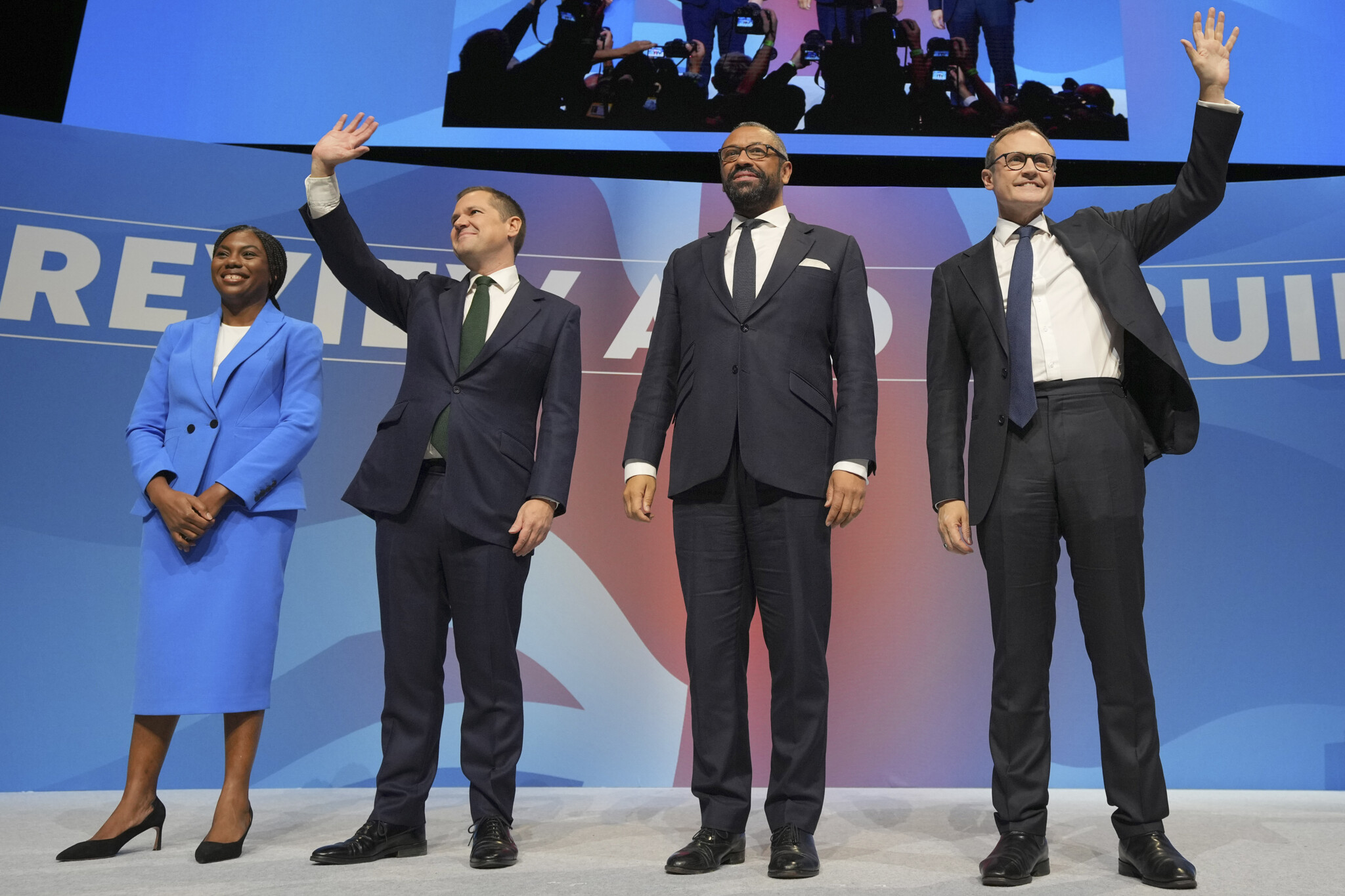I voted for a new leader last week. No, not in Canada—the one we’ve got is doing just fine, thanks very much. I voted for a new leader of the Conservative party in the United Kingdom. In case you haven’t been following the overseas intrigue, let’s catch you up.
In June of 2016, in a result that shocked the world, Britain voted to leave the European Union. Brexit wasn’t just jarring for reasons of trade and diplomacy, but because it represented a rupture in political dynamics, a realignment of voting coalitions, and an angry public refusing to be ignored. Tory Prime Minister David Cameron had to move on, and British Conservatives were thrust into a tumultuous eight years of internal drama, backstabbing, and rebellions, all while trying to lead their country and negotiate their way out of a powerful multinational organization.
Where Theresa May failed to “Get Brexit Done,” Boris Johnson succeeded, but his 2019 election triumph was but a brief reprieve as he succumbed to pandemic fall-out (not to mention his own eccentricities), resigning only a couple of years later. Through Liz Truss’ finance disaster, and Rishi Sunak’s plummeting popularity, election defeat became a matter of when, not if, and in July of this year, voters put the Tories out of their misery.
It was quite a decade in British politics.
Now, the Conservatives are wrapping up a multi-stage election to select their leader, one who won’t have the benefits of a governing party but who should have the time and space to properly hit the reset button and chart a path back to electoral victory. In a series of votes, the Conservative parliamentary caucus (those MPs who were able to hold their seats after the summer shellacking), winnowed the field of candidates down to two: Kemi Badenoch and Robert Jenrick.
Both young parents understood to be from the right flank of their party, it seems clear their elevation in the race represents a desire on the part of the party to transcend Cameroonian moderation (One Nation Toryism as they often call it) and rally around some fresh energy.
Badenoch is known for being a chippy idealogue—both a fiscal conservative and a culture warrior. She made a name for herself pushing back on the excesses of gender and race theory when she first ran for leader in 2022; policies she, as a Nigerian-raised woman in her forties, is seen as an especially effective prosecutor of. Badenoch appears to be a member favourite, consistently winning the grassroots media outlet Conservative Home member survey, though she’s been criticized for avoiding making policy commitments and occasionally running a bit too hot.
Jenrick, previously described as Robert “Generic,” was once himself a One Nation devotee who now rails against unbridled immigration, having handled the file in cabinet with hard-liner Suella Braverman, ultimately quitting government in protest against Sunak’s inability to solve it. While some have been drawn to Jenrick’s direct policy proposals, like his call for the U.K. to leave the European Convention on Human Rights, others have felt whiplash at his sudden political evolution and doubt the solidness of his principles.
For my part, I’ve been a Badenoch fan since she ran for the leadership in 2022 and gave strong voice to the frustrations so many conservatives around the world were feeling. However, Jenrick’s commitments have been compelling. Not only has he offered a specific policy solution to solve the immigration challenge, but he’s put forward some early economic and foreign policy thinking as well. This as Badenoch has shied away from policy commitments, insisting the problems are too complicated for quick fixes.
Ultimately, however, I went with my gut and cast my ballot for Badenoch. Consistent principles are not so easily found in elected politics, and hers are not only reliable but quite correct. Having spent last week in the U.K. catching up with British Tories, my sense is she’s the favourite to win. Still, I have my concerns—not just for Badenoch but for my partisan compatriots across the pond in general.
Despite being from the more conservative wing of the party, both Badenoch and Jenrick have spent the leadership race handwringing over unity. There’s nothing wrong with unity, mind you, it’s just that they’re putting the cart before the horse. I’m informed by our experience in Canada. When the Tories lost this past summer, they didn’t just lose votes to the winning Labour campaign. They lost votes to the centrist Liberal Democrats, and, more importantly, to Nigel Farage’s right-wing Reform UK party.
It was impossible not to draw parallels with when Canada’s own Reform Party split off from our Progressive Conservatives, putting conservatives in the political wilderness for thirteen years. The U.K. Tories haven’t quite been reduced to two seats in the House of Commons, but they’re not far off. It’s tempting, in that situation, to want to jump forward to the vision for a broad winning coalition, to drive a message that speaks to both Right and Left, to One Nation Tories and Thatcherites, to Lib Dem voters and Reform voters, to preach unity.
But that’s not how you build a winning coalition from the Right. Especially when you’ve got challenges on both flanks. Canadian Conservatives have had four leaders since our party reunited. They’ve won government, they’ve wallowed in opposition, and now they’re poised to take power again. When they’ve had success, they’ve always started by securing the base and reinforcing their right flank.
Once that’s managed, successful leaders in Stephen Harper (through the five commitments) and Pierre Poilievre (via everyone’s favourite slogan) have broadened their appeal by honing in on key priorities that resonate both with their strengthened voter core and a wider swath of the electorate. When Canadian Conservative leaders have tried to be all things to all people or avoided taking tough stances on divisive issues, they’ve lost voters on both sides. On the Right, first to the Reform and Alliance parties and then Maxime Bernier’s People’s Party, and on the Left, as liberals and progressives were turned off by the inauthenticity of Erin O’Toole’s overtures and voted for the real thing in Justin Trudeau.
Once the U.K. Tories choose their next leader, they need to get to work convincing their own supporters they have a better vision for their country, all while winning over Reform voters in the process. Fortunately, Badenoch has credibility on key issues that seem likely to resonate with Tories and frustrated Reformers alike. She’s an anti-woke, patriotic Brexiteer who’s tough on crime. Add to that a fearless approach to immigration and a working-class friendly economic policy—PM Keir Starmer’s climate policy seems an obvious target!—and you’ve got a recipe for a strong right-of-centre base from which to build back to a governing coalition.
Unity comes from winning. And winning follows strong, principled leadership. In the coming weeks, the British media will be full of people like Spectator columnist Alexander Horne warning the leadership race winner to play it safe and hedge, suggesting that a bold policy like exiting the SCHR “risks looking like…chasing the Reform vote,” just as Canadian columnists spent the months followingPoilievre’s leadership election beseeching to moderate himself.
Whoever is lucky enough to get the chance to lead the U.K. Tories should ignore the London columnists and look to their proud, united, conservative friends in Canada instead.











